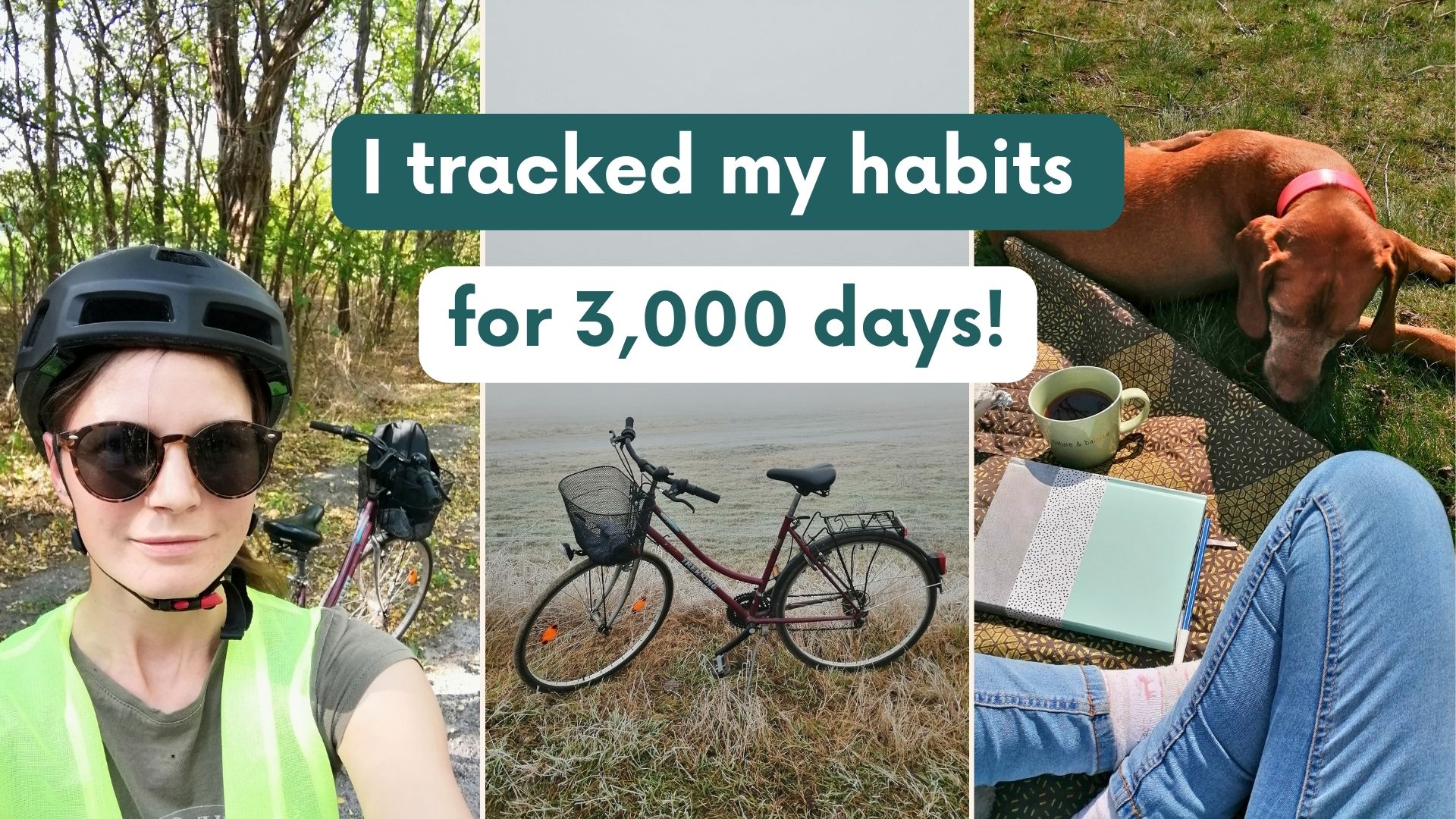I Tracked My Habits for 3,000 Days – What It Taught Me About Learning Hungarian

Szia! I’m Csilla, a Hungarian teacher and host of the Plain Hungarian Podcast.
In this post, I’d like to share something that changed not only how I live my everyday life, but also how I teach Hungarian: habit tracking.
If you’ve ever told yourself “I’ll start learning tomorrow”, “I just don’t have enough time right now”, or “I wish I could study more consistently”, this is for you.
Over the past 3,000 days, I’ve been tracking my own habits (yoga, meditation, cycling, reading, and yes, language learning too).
What I discovered along the way completely changed how I think about progress, motivation, and self-discipline.
In this post (and in the video below 👇), I’ll share the 15 lessons I’ve learned about habit tracking and how you can apply them to learning Hungarian effectively and joyfully.
🎥 Watch the video version in Hungarian with subtitles here:
Why habits matter more than motivation
Back in 2017, I downloaded a simple app, called Daylio to track my daily habits.
At first, it was just a diary, but it quickly became one of the most powerful tools I’ve ever used.
Since then, I’ve logged every single day - for 3,000 days - and learned how consistency can quietly transform your life.
As a full-time Hungarian teacher since 2021, I’ve seen something fascinating:
Two students can both study for two years - yet one reaches a strong B1 level, while the other remains stuck at A1.
The difference? Habit.
The successful learner doesn’t wait for motivation or a “perfect moment.”
They have a plan, they show up regularly, and they treat learning as a habit, not a special event.
Here’s what I’ve learned about how to do that.
15 Lessons from 3,000 Days of Habit Tracking
1. Start with a smaller goal
Begin tiny. Don’t say, “I’ll study an hour every day.”
Start with 10 minutes; something so small you can’t say no to it. Once you start, it will grow naturally.
2. Have a plan
Decide what, when, and how you’ll study.
Write a weekly plan: which days you’ll learn, for how long, and what exactly you’ll do. Planning removes excuses.
3. Put it on your calendar
If it’s in your head, it won’t happen.
If it’s in your calendar, it will. Treat your study sessions like appointments with yourself: non-negotiable.
4. Prioritise learning Hungarian
Don’t see it as “extra.”
Learning Hungarian is as important as brushing your teeth or sending that work email. Give it the respect it deserves.
5. Keep it simple
Have your book, podcast, and notebook ready.
The easier it is to start, the fewer excuses your brain will make.
6. Set both short- and long-term goals
Short-term: “I’ll learn vocabulary for 15 minutes three times a week.”
Long-term: “I’ll have a 10-minute conversation with a native speaker by summer.”
Both matter.
7. Track your habits
Write it down, tick it off, make it visible.
Habit tracking gives you proof that you’re making progress - even when you feel stuck.
(You can download my free printable & digital trackers below!)
8. Make it easy to win
At first, make your goals too easy to fail.
Success builds momentum, and momentum builds consistency.
9. Allow days off
Rest is part of consistency. Leave 1–2 flexible days a week so missing a session doesn’t derail you.
10. Study in the morning
If possible, study early.
Morning study time leaves less room for “I’m too tired” excuses later.
11. Accept that goals can change
Focus on one skill at a time - listening, speaking, grammar - and rotate when you need variety.
You don’t have to do everything at once.
12. Be playful and curious
Approach learning like a game.
Try new resources, challenge yourself, and don’t worry about being perfect, just keep moving forward.
13. Self-discipline beats motivation
Motivation fades; discipline stays.
Show up even when it’s hard, but also know when to rest intentionally.
14. Reward yourself
Small rewards matter!
A coffee after studying, a walk, or a new book.
Celebrate your consistency, not just your results.
15. Give yourself prep time
Start easing into your habit before your “official start date.”
It’s like a warm-up for your future consistency and it makes starting much easier.
What 3,000 days taught me
After 3,000 days, one thing is clear: consistency beats intensity.
You don’t need perfect conditions, endless free time, or constant motivation.
You need a system that fits your life, and a plan that removes decision fatigue.
That’s exactly why I created the Hungarian Language Learning Planner & Habit Tracker, a free eBook that helps you:
✅ Define your goals and motivation
✅ Plan your study week
✅ Track your daily progress
✅ Build habits that last
📘 Download your free copy here:
👉 Get the Hungarian Learning Planner & Habit Tracker
Thank you for subscribing!
Have a great day!

Final thoughts
I’ve seen these principles work again and again, for my students and for myself.
They’ve helped learners pass language exams, speak confidently with their Hungarian families, travel with ease, and even succeed in citizenship interviews.
If you start now, imagine where you could be in six months.
Don’t wait for the perfect time, build the habit that makes progress inevitable.